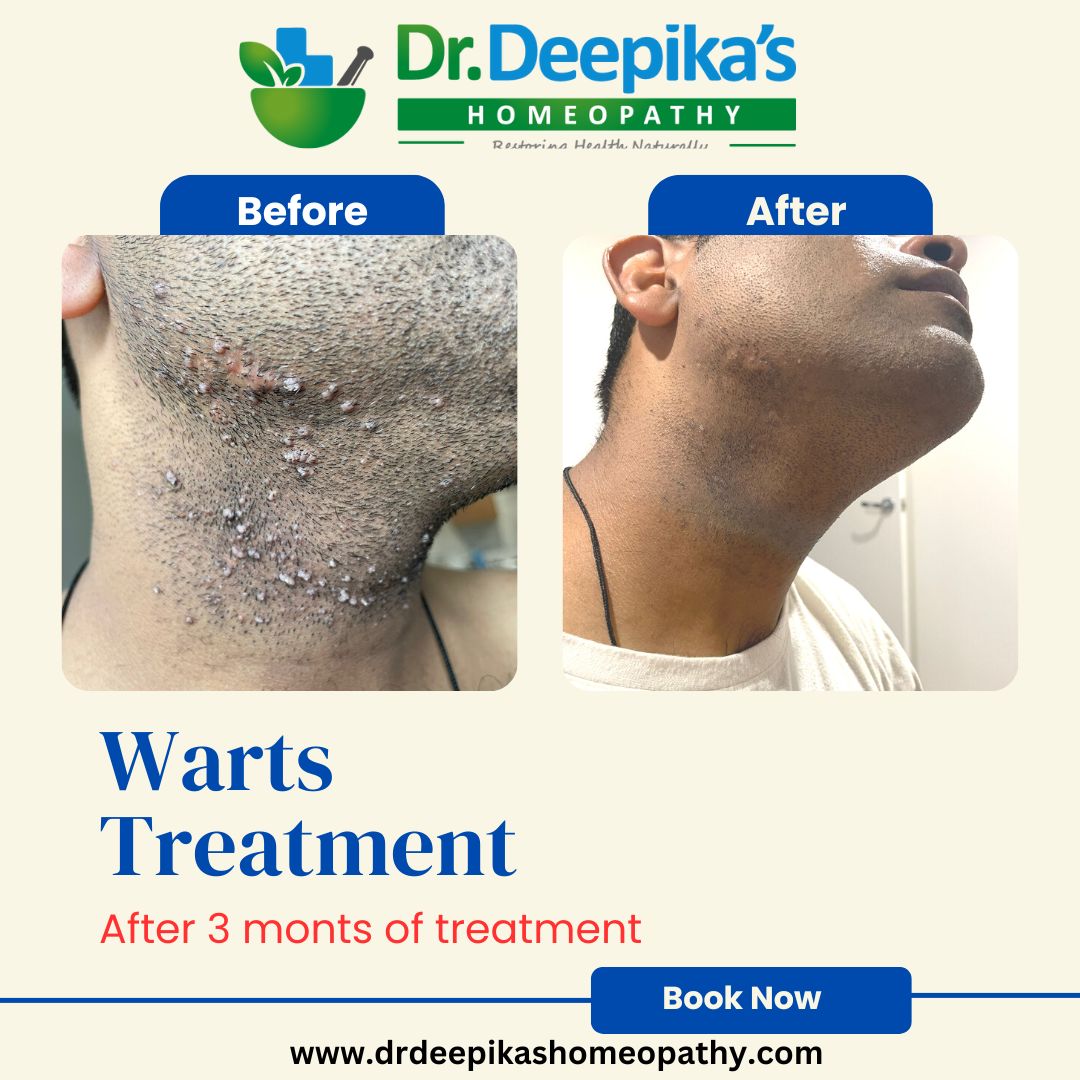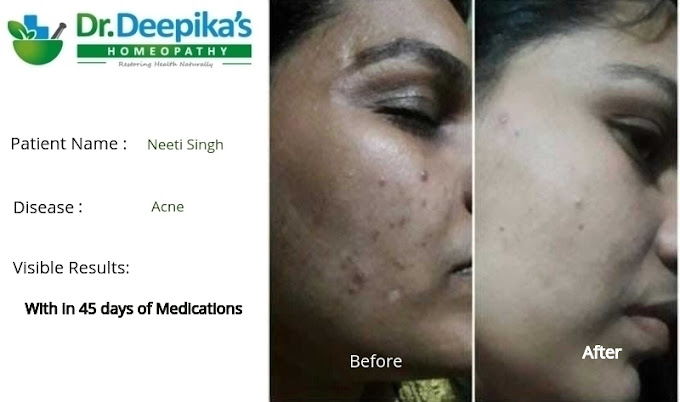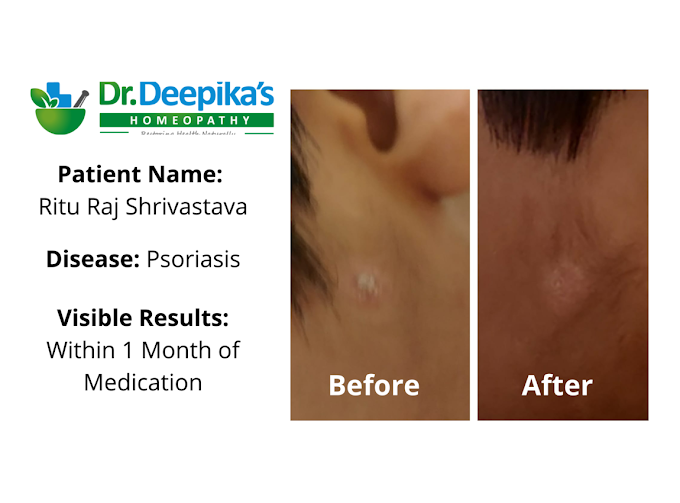Knee Pain Treatment at Dr. Deepika's Homeopathy: Embracing Relief through Natural Healing
Knee Pain Treatment Overview:
Knee pain is a common ailment that affects people of all ages and can significantly impact daily activities and overall quality of life. The causes of knee pain vary, ranging from acute injuries and overuse to chronic conditions like arthritis. Dr. Deepika’s Homeopathy offers a reliable and holistic approach to knee pain treatment, focusing on individualized care and natural remedies to promote healing and alleviate discomfort.
Facts About Knee Pain:
Before delving into the treatment options, let’s understand some key facts about knee pain:
Prevalence: Knee pain is prevalent among people of all ages, but it is more common in older adults and individuals engaged in sports or physically demanding activities.
Causes: Knee pain can be caused by various factors, such as ligament injuries, meniscus tears, osteoarthritis, rheumatoid arthritis, tendinitis, and bursitis.
Impact: Knee pain can limit mobility, affect posture, and lead to muscle weakness due to reduced physical activity.
In conclusion, knee pain can be debilitating and impact daily activities, but effective treatment can provide relief and enhance the quality of life. Dr. Deepika’s Homeopathy offers a reliable and holistic approach to knee pain treatment, utilizing personalized homeopathic remedies to stimulate healing and alleviate discomfort. Through natural and non-invasive methods, patients can experience improved mobility, reduced pain, and a renewed sense of vitality in their knee joints. Consultation with Dr. Deepika can open the door to a comprehensive and effective homeopathic treatment plan, allowing individuals to embrace life with comfort and ease.
Disclaimer:
The information provided here is for educational purposes only and should not be considered medical advice. Treatment for knee pain should be sought under the guidance and supervision of a qualified healthcare professional or orthopedic specialist. Individual responses to treatment may vary, and it is important to consult with a healthcare provider for proper diagnosis, evaluation, and personalized treatment options tailored to your specific knee health needs and circumstances.
Types of Knee Pain:
Patellofemoral Pain Syndrome (Runner’s Knee): Common among athletes and active individuals, causing pain around or behind the kneecap, especially during activities like running, jumping, or prolonged sitting.
Osteoarthritis Knee Pain: A common cause of chronic knee pain, especially in older adults, characterized by pain, stiffness, swelling, and reduced range of motion due to wear and tear of the knee joint cartilage.
Meniscus Tears: Frequently occurring due to sudden twisting or degenerative changes, leading to sharp pain, swelling, and limited knee mobility.
Iliotibial Band Syndrome (ITBS): Often seen in runners and athletes, causing pain on the outside of the knee due to inflammation or irritation of the iliotibial band.
Anterior Knee Pain: Including conditions like patellar tendinitis, chondromalacia patellae, or patellar subluxation/dislocation, resulting in pain at the front of the knee, especially during activities involving knee bending.
These types of knee pain can vary in severity, duration, and underlying causes. Proper diagnosis by a healthcare professional is essential for determining the specific type of knee pain and developing an appropriate treatment plan.
Symptoms of Knee Pain:
Pain: Aching, sharp, or dull pain in or around the knee joint, which may worsen with movement or weight-bearing activities.
Swelling: Visible swelling, puffiness, or fluid accumulation around the knee joint, often accompanied by warmth or redness.
Stiffness: Difficulty bending or straightening the knee fully, with a sensation of tightness or limited range of motion.
Instability: Feeling of the knee giving way or buckling, especially during activities like walking, climbing stairs, or pivoting.
Crunching or Popping Sensation: Audible or palpable sensations of grinding, popping, or cracking within the knee joint during movement.
Weakness: Reduced strength or muscle control in the knee, leading to difficulty in bearing weight or performing daily activities.
Locking: Inability to fully bend or straighten the knee, often due to a mechanical blockage caused by tissue or cartilage getting caught within the joint.
Limited Mobility: Difficulty in standing, walking, or performing activities that require knee movement, leading to decreased functional ability.
Tenderness: Painful sensitivity or tenderness to touch around the knee joint or specific areas of the knee, indicating inflammation or irritation.
Changes in Appearance: Visible deformity, asymmetry, or changes in the shape of the knee joint, which may indicate structural damage or joint abnormalities.
Diagnosis of Knee Pain:
Accurate diagnosis is crucial for effective knee pain treatment. Dr. Deepika’s Homeopathy employs a comprehensive approach to diagnose knee pain, which includes:
Medical History: The patient’s medical history and details about the onset, duration, and severity of the knee pain are assessed.
Physical Examination: A thorough examination of the knee joint, including range of motion and palpation, is conducted to identify signs of inflammation or injury.
Imaging Tests: X-rays, MRI, or ultrasound may be ordered to visualize the internal structures of the knee and rule out fractures or other abnormalities.
Homeopathic Treatment at Dr. Deepika’s Homeopathy:
Dr. Deepika’s Homeopathy offers a natural and holistic approach to knee pain treatment, focusing on stimulating the body’s self-healing abilities and restoring balance. Homeopathy considers each patient as a unique individual, taking into account their physical, emotional, and mental aspects to tailor a personalized treatment plan.
Homeopathic Medicines for Knee Pain:
The homeopathic treatment for knee pain involves carefully selected remedies based on the specific symptoms and causative factors. Some commonly used homeopathic medicines for knee pain include:
Rhus toxicodendron: Prescribed for knee pain worsened by initial movement, improving with continued motion.
Arnica montana: Effective for knee pain resulting from injuries, trauma, or overexertion.
Bryonia alba: Recommended for knee pain exacerbated by even slight movement, along with swelling and heat.
Causticum: Indicated for knee pain with stiffness, especially in the morning, and difficulty bending the knee.
Colchicum: Used for knee pain triggered by weather changes or when the knee feels hot and swollen.
Advantages of Homeopathic Treatment:
Homeopathy for knee pain offers several benefits:
Non-Invasive: Homeopathic remedies are administered orally, making the treatment non-invasive and free from injections or surgeries.
No Side Effects: Homeopathic medicines are derived from natural sources and are safe, with no known adverse side effects.
Individualized Approach: Each patient receives personalized care, ensuring the treatment addresses their unique symptoms and health profile.
Holistic Healing: Homeopathy addresses the root cause of knee pain, focusing on overall well-being and long-term relief.



EXCELLENTTrustindex verifies that the original source of the review is Google. GoodPosted onTrustindex verifies that the original source of the review is Google. Docters are very kind and help full Providing the best results and cure Really happy to share thi reviewPosted onTrustindex verifies that the original source of the review is Google. I approached her for my sinus treatment which I am having for years and she cured 90% of it in just 3 sittings and her approach is something I haven't seen with any of the doctor I met before, she is really good.Thank you so much doctorPosted onTrustindex verifies that the original source of the review is Google. She is best homeopathic doctor at sector 62, I was suffering from chickenpox , smallpox issue.. I got relieved from her medicine in 7 days.. Thanks doctorPosted onTrustindex verifies that the original source of the review is Google. What a miracle!! I contact Dr. Deepika's homeopathy for the treatment of external hemorrhoids. Result was unbelievable, withing 7 days it cured. Thanks for wonderful service.Posted onTrustindex verifies that the original source of the review is Google. Dr deepika Best doctor for kidney stone in noida.. You will get garateed relief within 30 to 45 days of medicine.. I got relief within 1 -2 doses only.







